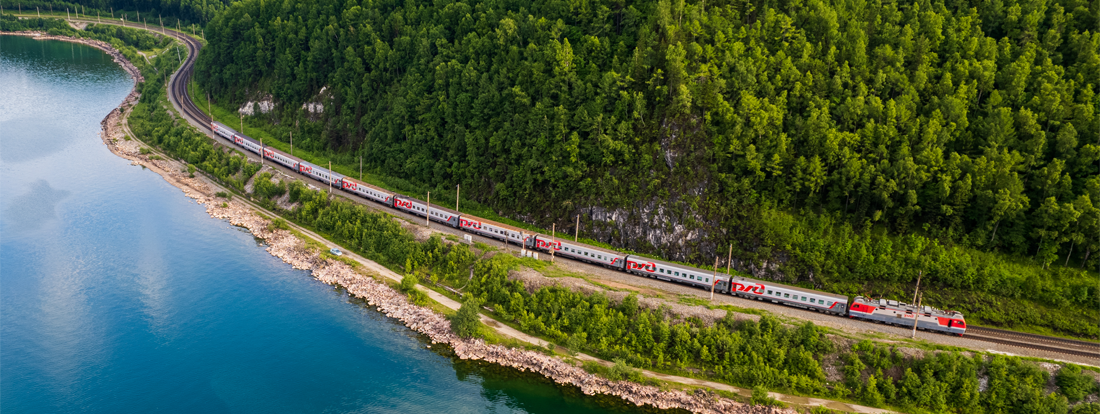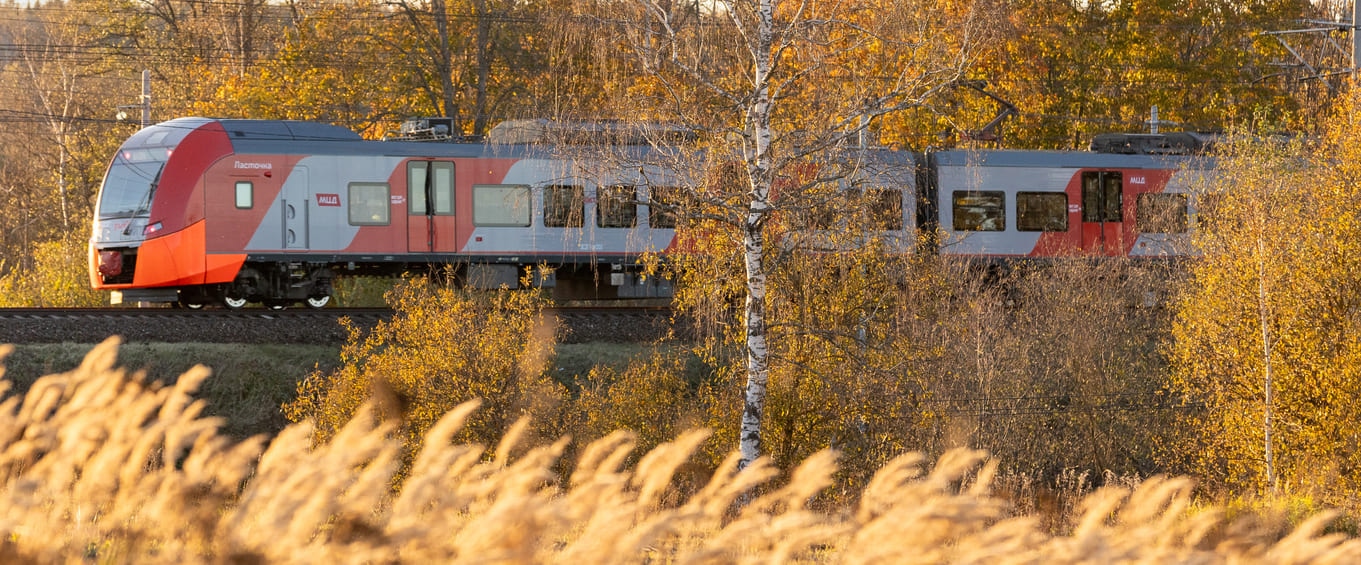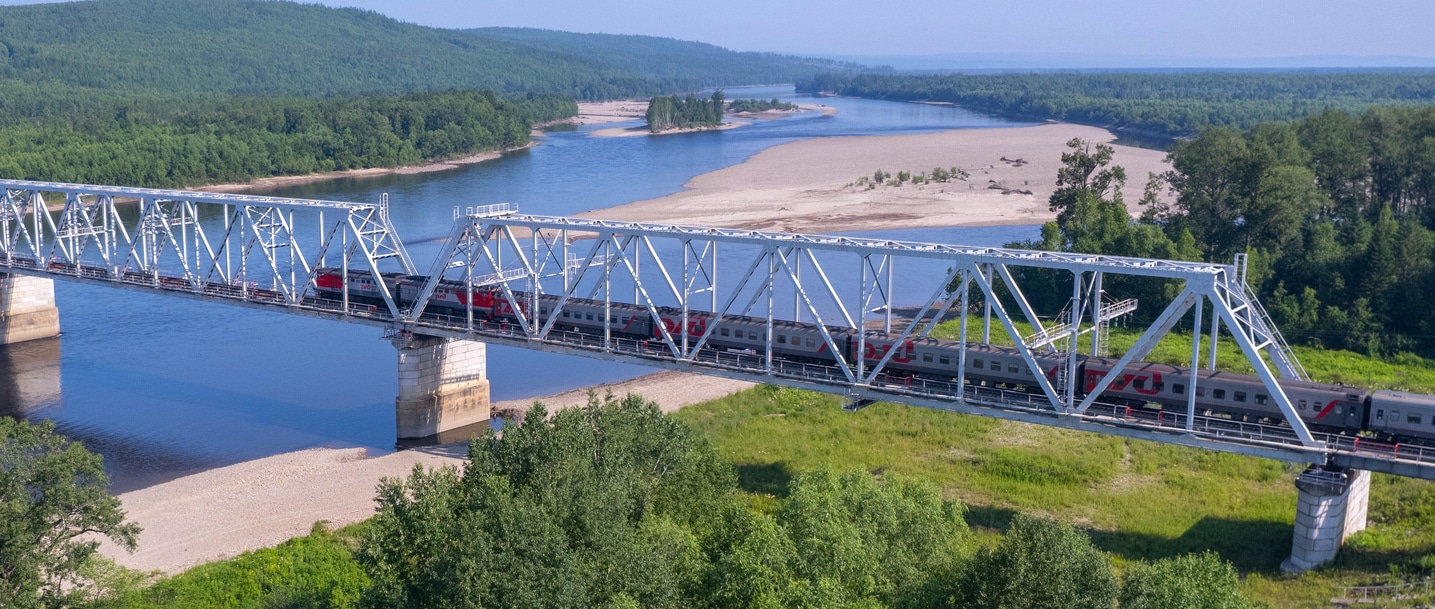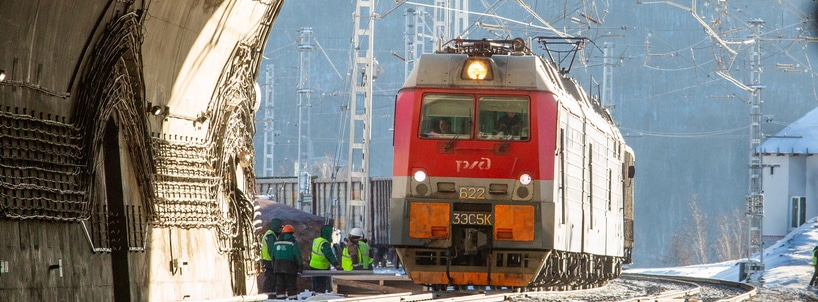Procurement management
Management approach
In procuring goods, works and services, Russian Railways adheres to the principles of equality, fairness, non‑discrimination and the absence of unreasonable restrictions on competition among bidders. On top of that, the Company pursues an open approach to promote publicity and transparency in these processes and foster fair competition.
Russian Railways’ procurement activities are governed by:
- Federal Law No. 223‑FZ On Procurement of Goods, Work and Services by Certain Types of Legal Entities dated 18 July 2011;
- other procurement laws and regulations;
- Regulation on the Procurement of Goods, Work and Services for the Needs of Russian Railways Approved by resolution of Russian Railways’ Board of Directors dated 28 June 2018, Minutes No. 26. .
Russian Railways complies with anti‑corruption and tax clauses, and no conflict of interest requirements. Suppliers may be included in the register of bad faith suppliers only on the grounds and in the manner set forth by applicable Russian laws.
Procurement risks
The Company’s key procurement risks include:
- procurement of materials and resources at inadequate prices;
- procurement of materials and resources in volumes insufficient for Russian Railways’ units;
- failure to procure from small and medium‑sized businesses as required;
- violation of laws when arranging and holding procurement procedures;
- violation of laws when making procurement disclosures;
- improper preparation of documents for competitive procurement.
To manage these risks, the Company:
- analyses market prices and monitors initial (maximum) prices;
- considers/plans procurement taking into account the requirements for purchases exclusively from small and medium‑sized businesses;
- monitors if its units fulfil the requirements for procurement from small and medium‑sized businesses;
- monitors legislative changes and amends its procurement regulations;
- monitors changes in the functions of information systems;
- standardises documents to arrange and hold procurement procedures;
- trains its employees;
- makes sure that planning, procurement and contracting are timely;
- automates processes and improves the functions of information systems;
- provides timely responses to queries on procurement.
Procurement in 2023
In 2023, we introduced certain amendments to our regulations aiming to enhance, streamline and improve the transparency of our procurement activities, as well as to increase the number of players representing various economic sectors.
The Regulation on the Procurement of Goods, Work and Services for the Needs of Russian Railways was amended as follows:
- regulations concerning conflicts of interest in procurement have been adjusted: a list of individuals who cannot be members of a procurement commission and the procedure for preventing and settling conflicts of interest were established In line with Federal
Law No. 160-FZ On Amendments to Article 3 of the Federal Law “On Procurement of Goods, Work and Services by Certain Types of Legal Entities” and the Federal Law “On the Contract System in the Procurement of Goods, Works and Services for State and Municipal Needs” dated 11 June 2022. . - the right to conclude a single‑source contract for a state defence order is granted if the Government of the Russian Federation decides to introduce special economic measures as per Article 26.1, clause 1 of Federal Law No. 61‑FZ On Defence dated 31 May 1996, ensuring counter‑terrorist and other operations outside Russia In line with Federal
Law No. 272-FZ On Amendments to Certain Legislative Acts of the Russian Federation dated 14 July 2022. ; - a ban on participation in procurement by persons recognised as foreign agents in accordance with applicable laws was introduced In line with Federal
Law No. 498-FZ On Amendments to Certain Legislative Acts of the Russian Federation dated 5 December 2022. ; - cases where the procurement law does not apply when making purchases from persons recognised as interdependent with the customer according to provisions in the Tax Code of Russia were clarified In line with Federal
Law No. 159-FZ On Amendments to Article 1 of the Federal Law “On Procurement of Goods, Work and Services by Certain Types of Legal Entities” dated 11 June 2022. ; - to ensure proper implementation of investment projects, including the investment project Upgrade of Rail Infrastructure of the Baikal–Amur and Trans‑Siberian Main Lines Designed to Enhance the Throughput and Carrying Capacity of the Railways (second stage), it is now possible to set out in procurement documentation and/or contracts conditions that establish the customer’s right to unilaterally change or terminate a contract due to adjustments in relevant investment projects, including changes in or absence of financing limits In line with Minutes No. 4 of the meeting of Russian Railways’ Board of Directors dated 24 November 2022. .
To secure a uniform procurement approach in view of antitrust practices and to expand the scope of potential bidders, amendments were made to procurement documents.
For more details on Russian Railways’ procurement activities, see the Procurement and Bidding section on the Company’s website

2023 performance
Competitive procurement continued to account for the largest share in the total procurement volume.
In the reporting year, Russian Railways procured goods, works, and services for RUB 1,881.8 bn, including:
- RUB 1,232.8 bn, or 65.5% – competitive procurement;
- RUB 546.2 bn, or 29.0% – single‑source procurement;
- RUB 102.8 bn, or 5.5% – non‑competitive procurement.
Single‑source procurement is special‑purpose procurement for the railway industry (contracts for the supply, servicing and maintenance, upgrade and repairs of the rolling stock worth RUB 326.1 bn).
According to the procurement breakdown, goods have the largest share in total procurement (45.7%), with materials and supplies, rolling stock, and equipment representing sizeable 24.4%, 10.1% and 8.7%, respectively.
Work accounts for 38.2%, of which the largest share is attributable to construction and installation (18.8%), upgrades, repairs, and maintenance of the rolling stock (12.6%).
Services make up 16.1% in total procurement, including transportation, security, financial services, water supply and disposal, heating, gas and heat supply, medical services, lease services, and cleaning and laundry services (12.1 %).
Import substitution
The Russian Railways Group continues to consistently enhance technological independence to ensure the stability and technological security of transportation business processes in line with its Comprehensive Import Substitution Programme through 2025 Russian Railways’ Order No. 3125/r dated 31 December 2019. .
We developed and introduced a risk‑based approach for timely risk forecasting and subsequent management decision‑making and preventive measures to eliminate and/or minimise the impact of using products reliant on imports in the production processes of the Russian Railways Group in the light of new sanctions restrictions.
To stimulate the adoption of domestic innovations, the Company focuses on leveraging state support to fund research and development at manufacturing facilities. In its turn, the Russian Railways Group acts as an anchor customer, securing a guaranteed order volume for Russian‑made railway products and bolstering machinery manufacturers via existing long‑term contracts.
- reducing dependency on imported complex technical systems such as railway automatics and telematics equipment;
- reducing railway industry dependency on imported transportation machinery;
- preferred use of domestic software;
- equipping railway infrastructure with import‑independent hardware and software;
- scheduled replacement of foreign products with domestic ones.
Construction
In the construction domain, domestic products, works, and services accounted for 99.6% of Russian Railways’ total procurement volume in 2023.
Under the Comprehensive Plan for Upgrading and Expanding Core Infrastructure Approved
- enhancement of the throughput and carrying capacities to achieve an increase in transit container traffic, including the Trans‑Siberian in Seven Days project – 99.5% (target: 94%);
- development and renovation of the rail infrastructure serving ports of the Azov and Black Seas – 99.9% (target: 92%);
- development and renovation of the rail infrastructure serving ports of the North‑Western basin – 99.9% (target: 93%).
Architectural planning, construction design, engineering surveys, as well as construction and installation works are exclusively sourced from Russian entities.
Rolling stock
In 2023, the following series of national rolling stock, featuring a domestic component share in excess of 90%, entered the production phase:
- locomotives: 2(3) TE28, 2(3) ES8;
- electric trains: EP2DM, EP3D (incl. No. 087), ES104 Finist, EGE2Tv Ivolga 4.0 (ver. 09‑16);
- locomotive traction passenger cars: 61‑4472 (ver. 08), 61‑4473 (ver. 08), 61‑4465 (ver. 08, 09).
The development and production launch processes for these vehicles have been finalised, and compliance certificates have been issued in line with the Technical Regulations of the Customs Union.
Sanctions and exit of numerous international brands (previously engaged in repairing special rolling stock) from the Russian market force the country to substitute foreign powertrains with domestic alternatives:
- in 2023, imported diesel engines – Caterpillar C6.6 (for KGT road‑rail loaders), Cummins N14 (for Duomatic 09‑32 tamping machines), and Deutz (for Dynamic machines) – were replaced with Russian‑made engines;
- a three‑year programme was initiated, with plans for 2024 to replace Cummins N14 engines in 19 Duomatic (74 units) and Unimat (63 units) tamping machines with YAMZ‑65802 engines, and to equip 91 loaders with Russian engines;
- jointly with the School of Space and Information Technology at the Siberian Federal University, we delivered a project to re‑engineer technical gas control board El‑T5311.00 for Duomatic 09‑32 and Unimat 08‑275‑3s tamping machines. This initiative seeks to enhance the board’s technical specifications by employing more contemporary circuit designs in the output stage.
For more details on import substitution in IT, see the Innovations and Efficiency Improvement section.

Procurement from small and medium‑sized enterprises
For the fifth consecutive year, Russian Railways secured a Top 20 position among major customers dedicated to supporting small and medium‑sized enterprises (SMEs).
The Company’s robust procurement strategy and comprehensive measures have enabled it to maintain its leading spot in the Top 20 of the customer loyalty rating for SMEs for five years running, earning recognition for the highest volume of SME procurement in 2023.
This ranking, developed collaboratively by the Agency for Strategic Initiatives and SME Corporation, considers various criteria: total annual procurement from SMEs, diversity of items purchased and contracts signed, engagement in SME supplier development programmes, and other factors.
Despite its achievements, Russian Railways remains committed to spearheading state policies for SME development, enhancing procurement efficiency, and intensifying efforts to boost SME procurement performance.
To foster supplier development and facilitate SME expansion, Russian Railways became the first major purchaser to introduce long‑term offset contracts with an investment element featuring stiff competition (seven to 18 bids per auction).
Following the selection process, offset contracts were made with SMEs for labour‑saving devices for a total of RUB 99.5 m (VAT included), bottled water, totalling RUB 145.5 m (VAT included), lumber and timber, totalling RUB 401.1 m (VAT included).
Drawing from this experience, the Company adopted a universal 2030 SME development programme Russian Railways’ Order No. 2221/r dated 30 August 2023. . This initiative empowers all Russian Railways units to select and engage with SMEs for goods, works, or services through offset contracts with an investment element.
On the official Russian Railways website, in the Procurement and Bidding section (Regulations and Information for SMEs subsections), detailed guidelines are available. These feature insights into common errors made by bidders and guidance on how to avoid them, provide document templates, and offer presentations titled Becoming a Russian Railways Supplier and SME Participation in Russian Railways Procurement, etc.
In 2023, procurement involving SMEs only made up 23.4% against the statutory threshold of 20.0% per year, while the total share of procurement from SMEs stood at 70.7% against the annual statutory requirement of 25.0%.
In its commitment to SME support and development, Russian Railways, in collaboration with SME Corporation, conducted 36 training workshops attended by 2,455 SMEs in 2023.
Russian Railways keeps pursuing its partnership programme with SMEs, targeting the identification and compilation of a roster of partners specialising in high‑tech manufacturing, sales, and engaged in R&D and technological endeavours. In 2023, 176 SMEs confirmed their eligibility for the partnership programme Approved by Russian Railways’ Order No. 276/r dated 5 February 2014. .

Sustainable development and supplier engagement
Occupational health and safety
The Company relies on the Regulation on OHS Relations of Russian Railways with Contractors to ensure safe work of contractors on its sites.
It stipulates OHS requirements for contractors in service contracts, putting relevant branches where contractors perform work in charge of overseeing compliance. In case of violations, the contractor is penalised as provided for in the contract.
Contracts for work on Russian Railways sites and premises include the following:
- OHS provisions regulating responsibilities of the customer and contractors, including contractor liability for breaching safety rules;
- provisions on contractor staff compliance with Russian Railways’ OHS requirements;
- provisions on the timely notice to the Company of all accidents, injuries, health impairment and illnesses of employees, and other work‑related emergencies.
Supplier environmental responsibility
The Company adopted an in‑house methodology to assess supplier environmental responsibility.
To monitor contractor compliance with environmental requirements, we use the Methodology for the Recognition and Assessment of Environmental Requirements for Products, Raw Materials and Supplies Purchased by Russian Railways’ Business Units. This methodology regulates compliance with additional requirements and helps:
- reduce the environmental footprint;
- improve working conditions;
- increase the Company’s economic performance through better energy and resource efficiency.
Supplier hotline
To ensure that legal entities and individuals exercise their right to access information about Russian Railways’ procurement of goods, works, services and can participate in relevant procurement activities, the Company operates a hotline to address any enquiries related to procurement.
This hotline offers guidance on the organisation and execution of competitive procurement processes.
Enquiries can be submitted 24/7, with each being addressed within one business day. Questions and answers are made available on the Company’s official website.
